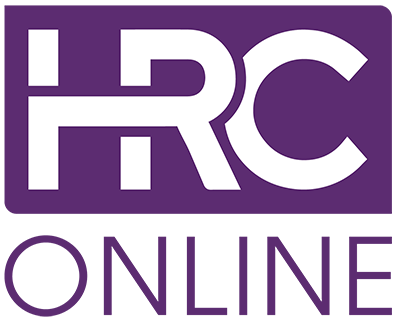
At HRC, we are completely digital. And our assessment based learning means you learn the knowledge to answer the questions, and this method is quicker, more effective and gets you the same qualification.
Some people turn their noses up at this method of learning, but we think being a ‘qualification snob’ is a barrier to learning. Digital online learning is the best way for most HR professionals to get their CIPD Level 3 and CIPD Level 5 qualifications.
HRC’s methods are what learners want
We know, as a busy professional, learners just don’t have time to study like they did at school or college, with enormous books, huge syllabuses and lots of time to read them.
HRC’s learning strategy is to break things down into small pieces, and focus on the question, rather than the entire subject.
At HRC, we guide you through each question, providing the insights, knowledge and confidence to answer the question you’re focusing on, then we move onto the next. And it works. Our learners achieve the same qualification as everyone else, and all our methods are fully approved by CIPD.
HRC’s online, assessment based learning is a more logical, understandable, and quicker way to learn. And it allows you to apply your new knowledge quicker and more directly.
Some ‘qualification snobs’ might turn their noses up at how we approach our learning, but we know it works because our learners tell us so.
A global example of the benefits of Digital Learning
In a report produced in April 2024, entitled “Philosophy of education in a changing digital environment: an epistemological scope of the problem, a group of Kazakhstani scientists highlighted how understanding knowledge (epistemology) is essential as education becomes more digital.
The research involved 462 university students from Kazakhstan, split into experimental and control groups. The study used various scientific methods to measure personal growth and cognitive development.
It found that digital learning improves both thinking and personal growth, with significant increases in creativity, self-realisation, and logical thinking. It concluded that digital tools help reduce learning risks and make education more effective.
Further Reading
- Aagaard T, Lund A (2019) Digital agency in higher education: transforming teaching and learning. Routledge, London.
- Al-Ababneh MM (2020) Linking ontology, epistemology and research methodology. Sci Phil 8(1):75–91.
- Alfano M, Klein C (2019) Trust in a social and digital world. SERRS 8(10):1–8. https://wp.me/p1Bfg0-4tk. Accessed 26 October 2023.
- Ardashkin IB (2014) Risk as an epistemological phenomenon. Bulletin of the Tomsk State University. University Philosophy. Sociology. Political science 2(26):66–75. https://cyberleninka.ru/article/n/risk-kak-epistemologicheskiy-phenomen. Accessed 26 October 2023.
- Balazka D, Rodighiero D (2020) Big data and the little big bang: an epistemological (R)evolution. Front Big Data 3:31. https://doi.org/10.3389/fdata.2020.00031.
- Balg D (2022) Who is who? Testimonial injustice and digital learning in the philosophy classroom. Teach Phil 45(1):1–21. https://doi.org/10.5840/teachphil202192153.
- Bencze L, Pouliot C, Pedretti E, Simonneaux L, Simonneaux J, Zeidler D (2020) SAQ, SSI and STSE education: defending and extending “science-in-context.” Cult Stud Sci Educ 15:825–851.
- Buchanan RA, Forster DJ, Douglas S, Nakar S, Boon HJ, Heath T, Heyward P, D’Olimpio L, Ailwood J, Eacott S, Smith S, Peters M, Tesar M (2022) Philosophy of education in a new key: Exploring new ways of teaching and doing ethics in education in the 21st century. Educ Phil Theory 54(8):1178–1197. https://doi.org/10.1080/00131857.2021.1880387.
- Burke J, Goriss-Hunter A, Emmett S (2023) Policy, discourse and epistemology in inclusive education. In: Inclusion, Equity, Diversity, and Social Justice in Education: A Critical Exploration of the Sustainable Development Goals. Springer Nature, Singapore, pp 13–27.
- Carstens D (2019) New materialist perspectives for pedagogies in times of movement, crisis and change. Alternation 26(2):138–160. https://doi.org/10.29086/2519-5476/2019/v26n2a7.
- Cartiff BM, Duke RF, Greene JA (2021) The effect of epistemic cognition interventions on academic achievement: a meta-analysis. J Educ Psych 113(3):477–498. https://doi.org/10.1037/edu0000490.
- Coghlan S, D’Alfonso S (2021) Digital phenotyping: an epistemic and methodological analysis. Phil Technol 34(4):1905–1928.
- Cope B, Kalantzis M (2022a) The changing dynamics of online education: five theses on the future of learning. In: Foreign Language Learning in the Digital Age. Routledge, London, pp 9–33.
- Cope B, Kalantzis M (2022b) The cybernetics of learning. Educ Phil Theory 54(14):2352–2388. https://doi.org/10.1080/00131857.2022.2033213.
- David SA, Motala S, Lawrence ASA, Albina AP (2023) Exploring student’s experiences on epistemic access for effective teaching and learning in higher education. Int J Instr 16(1):151–172. https://doi.org/10.29333/iji.2023.1619a.
- De Caro M, Macarthur D (eds) (2022) The Routledge handbook of liberal naturalism. Routledge, London.
- Dege M, Strasser I (eds) (2021) Global pandemics and epistemic crises in psychology: a socio-philosophical approach. Routledge, London.
- Develaki M (2019) Methodology and epistemology of computer simulations and implications for science education. J Sci Educ Technol 28(4):353–370.
- Doidge S, Doyle J, Hogan T (2020) The university in the global age: reconceptualising the humanities and social sciences for the twenty-first century. Educ Phil Theory 52(11):1126–1138. https://doi.org/10.1080/00131857.2020.1752186.





